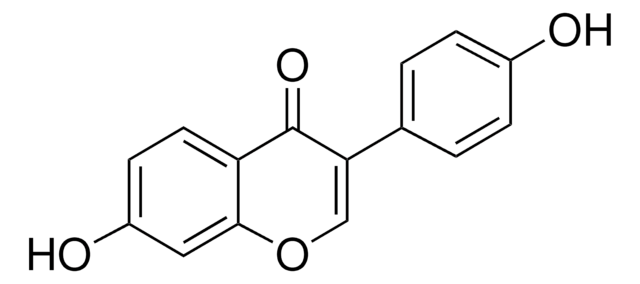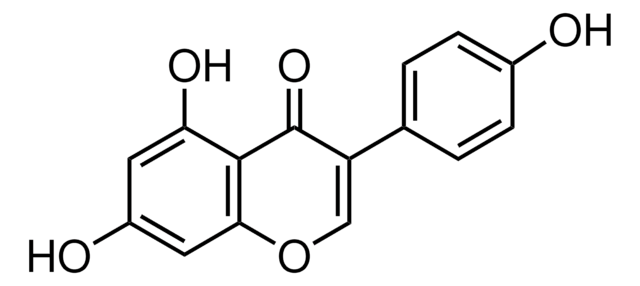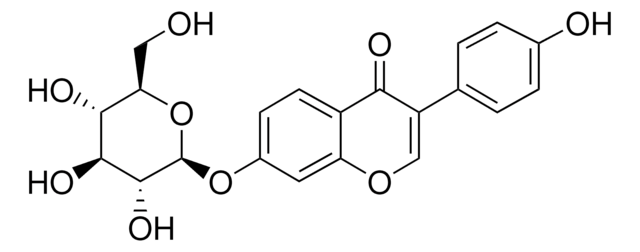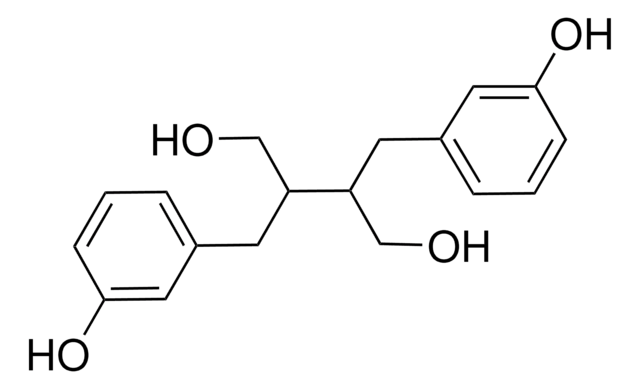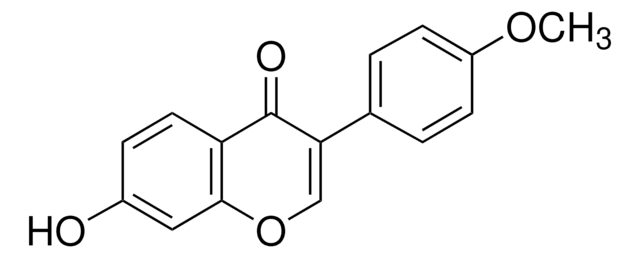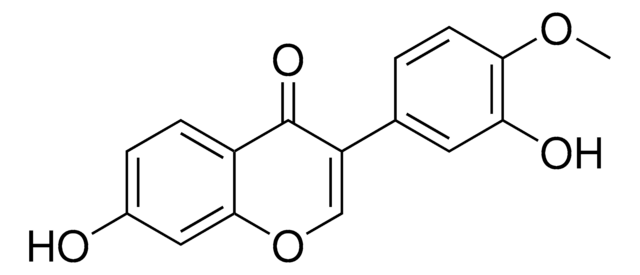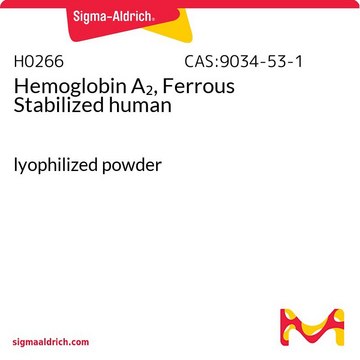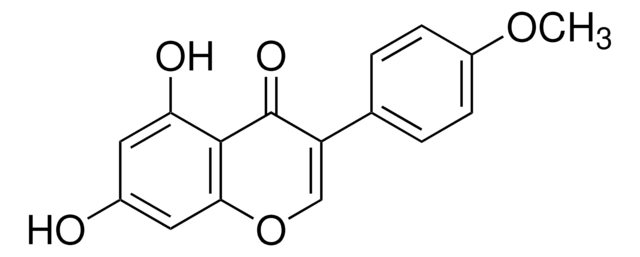G2785
Glycitein
≥97% (HPLC)
Sinónimos:
4′,7-Dihydroxy-6-methoxyisoflavone, Glycetein
About This Item
Productos recomendados
biological source
synthetic (organic)
Quality Level
assay
≥97% (HPLC)
form
powder
solubility
DMF: 1 mg/mL, clear, colorless to faintly yellow
storage temp.
−20°C
SMILES string
COc1cc2C(=O)C(=COc2cc1O)c3ccc(O)cc3
InChI
1S/C16H12O5/c1-20-15-6-11-14(7-13(15)18)21-8-12(16(11)19)9-2-4-10(17)5-3-9/h2-8,17-18H,1H3
InChI key
DXYUAIFZCFRPTH-UHFFFAOYSA-N
¿Está buscando productos similares? Visita Guía de comparación de productos
Application
Biochem/physiol Actions
Storage Class
11 - Combustible Solids
wgk_germany
WGK 3
flash_point_f
Not applicable
flash_point_c
Not applicable
ppe
Eyeshields, Gloves, type N95 (US)
Elija entre una de las versiones más recientes:
¿Ya tiene este producto?
Encuentre la documentación para los productos que ha comprado recientemente en la Biblioteca de documentos.
Los clientes también vieron
Artículos
Antioxidants protect biological systems from oxidative damage produced by oxygen-containing free radicals and from redoxactive transition metal ions such as iron, copper, and cadmium.
Nuestro equipo de científicos tiene experiencia en todas las áreas de investigación: Ciencias de la vida, Ciencia de los materiales, Síntesis química, Cromatografía, Analítica y muchas otras.
Póngase en contacto con el Servicio técnico